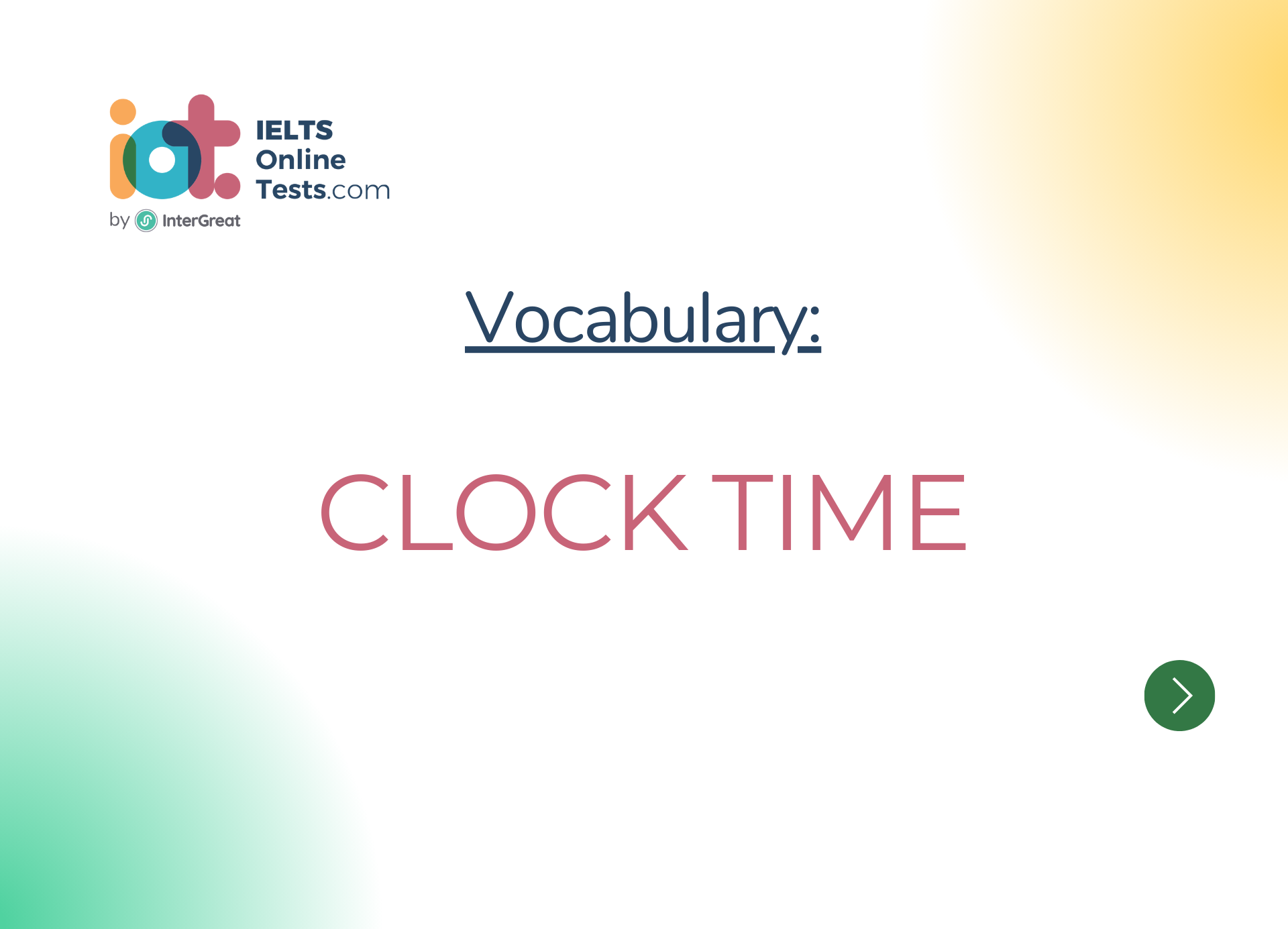
Clock time
Here's a lesson on vocabulary related to "Clock Time" for the IELTS band score 3.0-4.5:
I. Time Format:
Analog clock: A clock with hour and minute hands.
Digital clock: A clock that displays the time numerically.
II. Phrases and Expressions:
What time is it? - Asking for the current time.
It's [time] - Stating the current time.
A quarter past [hour] - 15 minutes after the hour.
Half past [hour] - 30 minutes after the hour.
A quarter to [hour] - 15 minutes before the next hour.
Noon - Midday or 12 o'clock in the daytime.
Midnight - 12 o'clock at night.
AM/PM - Used to indicate morning (AM) or afternoon/evening (PM).
III. Time Units:
Hour: A unit of time equal to 60 minutes.
Minute: A unit of time equal to 60 seconds.
Second: The smallest unit of time.
IV. Daily Time Phrases:
Morning: The period of time between midnight and noon.
Afternoon: The period of time between noon and evening.
Evening: The period of time between late afternoon and night.
Night: The period of darkness between sunset and sunrise.
V. Time Prepositions:
At: Used to specify an exact time (e.g., at 9 o'clock).
In: Used to express a general time frame (e.g., in the morning).
On: Used to indicate specific days or dates (e.g., on Monday, on the 25th).
VI. Common Clock Time Phrases:
Quarter past [hour]: Refers to 15 minutes after the hour (e.g., quarter past 3).
Half past [hour]: Refers to 30 minutes after the hour (e.g., half past 6).
Quarter to [next hour]: Refers to 15 minutes before the next hour (e.g., quarter to 9).
Sharp: Used to indicate an exact time with no minutes past the hour (e.g., 6 o'clock sharp).
On the dot: Another way to express an exact time (e.g., 3 o'clock on the dot).
Remember to practice using these vocabulary words in sentences and conversations to improve your understanding and fluency in English.




